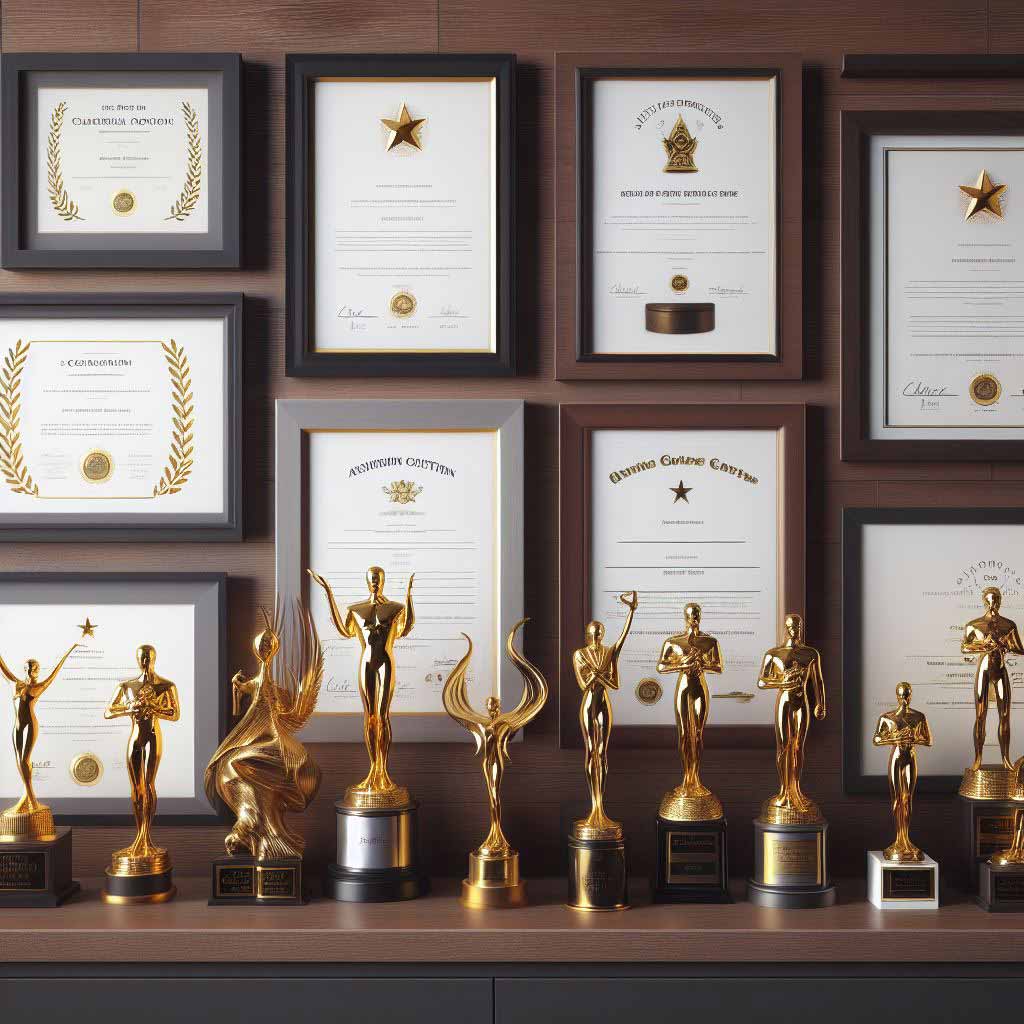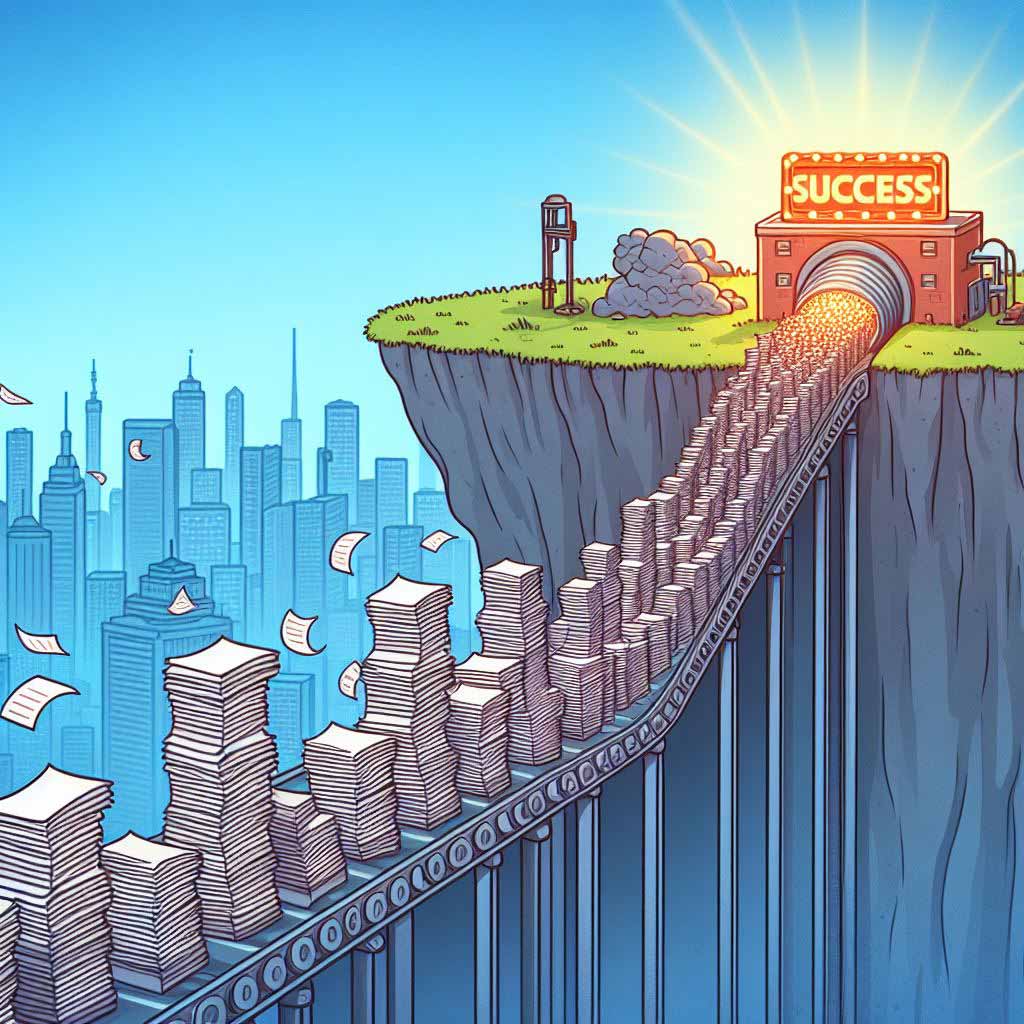If you’re an aspiring screenwriter looking to break into the industry, you’ve probably heard about the wondrous promise of screenwriting contests.
Just place in the top few, or so the lore goes, and like Cinderella meeting her prince, you’ll instantly catch the eye of elite Hollywood agents, managers, and producers who will catapult you into the life of your dreams.
With nearly over $25 million in cash and prizes awarded through contests like the Academy Nicholl Fellowships, Script Pipeline, Screencraft, Sundance, and Page Awards every year, why wouldn’t you toss your script into the digital pile?
Get discovered like Diablo Cody and you too could be the next Little Miss Sunshine!
But for every fairytale ending championed online, there is another sob story posted on Reddit from a weary writer who spent years and thousands of dollars entering contests without so much as a complimentary coffee meeting.
So do screenplay contests work, or are they more fantasy than reality? Let’s cut through the hype and weigh the cold, hard truth on both sides.

What Are The Main Benefits of Screenwriting Contests?
On the surface, screenwriting contests offer aspiring screenwriters a compelling value proposition: a chance to get your unknown scripts some visibility with industry gatekeepers who can help launch your career.
The concept exploits the allure of getting “discovered” in a field where overnight success feels possible.
Here are some of the main benefits contests tout to entice writers:
Exposure To Elite Industry Players Who Would Likely Never See Your Script Otherwise
Most major screenwriting competitions offer guaranteed access to well-connected judges from studios, production companies, agencies, and management firms.
According to Coverfly, over 1,000 companies have judges look through contest submissions each year hunting for that diamond in the rough.
Just having an executive from a major company like CAA or Paramount flipping through those critical first pages of your script is the kind of access new writers salivate over.
It’s the Hollywood fairy godmother waving her magic wand over your work that would otherwise be buried unseen on the dusty hard drives of the internet.
Of course, just because big names are associated with the competitions doesn’t guarantee your script gets viewed by any of them directly or makes it past an overworked assistant plucked from the mailroom.
But major contests do get your work through the door and at least register your existence on industry radars.
Career Advancement Opportunities Such As Signing With Top Agents/Managers or Production Deals
Most competitions try to sweeten the pot by offering guaranteed meetings, signing deals, or script options to bolster their industry relevance.
The prestigious Academy Nicholl Fellowships promises its handful of annual fellows will meet with agents and managers.
Script Pipeline touts over a dozen “success” stories of past winners and finalists getting signed with major agencies like CAA and management/production companies that have led to studio deals.

Now, it must be said, that very few of these deals have resulted in actual produced films thus far and the meetings don’t always lead anywhere meaningful long-term.
But the buck has to start somewhere, and any way to get through the door in Hollywood has real value. At the very least, finalist placements on a well-regarded writing contest pad your credentials.
High Caliber Objective Feedback To Refine Your Skills
A few contests promise detailed feedback or notes from judges evaluating early-round submissions, while nearly all provide feedback for quarter, semi, and finalist selections.
Given many judges work as industry readers, getting their take on plot, pacing, characters and other fundamentals can prove invaluable for aspiring screenwriters hoping to improve their craft.
Sure, contests with thousands of entries farm out initial evaluations to interns who range from film students to receptionists’ cousins majoring in communications. So quality control on the feedback front can get questionable.
But for writers who make it past those early hurdles into late-round consideration, detailed thoughts from working development executives, producers, and managers could provide an impartial diagnosis no struggling newbie writer’s circle of friends is qualified to match.
Motivational Deadlines To Finally Complete That Half-Finished Script Collecting Dust In Your Drawer
Ask any writer what their biggest enemy is and they’ll likely answer: sitting down to write. Like clearing out the garage or organizing old photos, finishing scripts requires sustained motivation most mortals struggle to muster without pressing due dates.
Screenwriting contests provide those piercing punctual stakes, with deadlines spaced across the calendar year giving writers continual targets to spur them into action.
Having an impatient contest coordinator eagerly awaiting your submission can work wonders to transform that three-quarters-baked draft into a completed project.
Sure, contest entry fees give administrators more than enough incentive to limit extensions. But having to fork over your hard-earned money makes flaking out on deadlines all the more painful.
Professional script consultants can provide similar motivational milestones, but charge 10 times as much for the privilege. So contests give writers on a budget access to the same whip-cracking inspiration to finalize their masterpieces.
Why Contests Are A Long Shot Gamble For Most Writers
Those hopeful benefits sure make entering a few prominent screenwriting contests seem like a sensical strategy for ambitious unknown writers seeking their lucky break through the impenetrable castle walls surrounding Hollywood’s kingdom.
But those lustrous rewards obscure a darker underbelly to competitions that make gambling your money, hopes, and scripts on their long-shot odds an act of desperation more than tactical career advancement.
Here are some harsh realities to consider before filling your fountain pen to scribble another entry check:
Infinitesimal Odds of Victory With So Many Entries Chasing Too Few Spoils
Like coy agents or standoffish romantic interests, screenwriting contests play hard to get by design. Nothing enhances the desirability of an opportunity like scarcity and exclusivity.
]Competitions leverage the steep odds of victory as proof of the profound career escalation their awards promise.
But with blue ribbon honors limited to around a dozen lucky victors selected from applicant pools surging into the thousands or even tens of thousands, contests flaunt selection rates that make getting into Harvard Law School during the Gilded Age look easy.
Let’s crunch the numbers on the odds of snagging the career escalation gold ring contests used to tantalize hungry writers:
- The Academy Nicholl Fellowships hands out just five nods annually, plucking a lucky handful of fellows from an annual herd of over 7,000 entrants. As its website proudly notes, those odds make it “one of the most difficult competitions in the arts.” You have a better chance of getting struck by lightning.
- The Script Pipeline Screenwriting Contest likewise awards one lone grand prize winner from around 6,500 initial entries they whittle down to around 125 quarter and semi-finalists through their Byzantine judging process, making odds about .02% in any writer’s favor.
- Perhaps the “easiest” contest to notch a win, the Screencraft Screenwriting Fellowship still only hands its shiny medallion to about nine of over 6,750 entrants. And several of those winners hail from preordained quarter and semi-finalist ranks in earlier years, lowering newbies’ odds even more.

And those are the big Kahuna contests sponsored by deep-pocketed institutions like the Academy itself or fueled by investor funds accumulated by contest parent companies like Script Pipeline and Screencraft as they expanded into a spectrum of film-centric contests across genres.
Smaller competitions brandishing less industry clout tilt odds even more lopsidedly against the titans of unknown writers self-submitting from around the globe.
Most of THOSE contests show odds north of .01%, meaning you’re more likely to pen a bestselling novel while learning to surf than snag their crown.
When High Entry Fees And Numerous Contest Submissions Add Up Fast
Ah, but an enterprising writer seeking to mitigate astronomical individual contest odds could simply submit to ALL the dozens of fests flooding the market, right? With so many comps to enter these days, at least one is bound to take pity and give out a token laurel wreath.
But pursuing such a volume contest entry approach risks racking up substantial fees fast. Legit competitions sporting the most credible industry ties demand entry fees from $45 on the low end up to $95 per submission.
Crunch a few hypothetical costs for a writer entering a modest and then more aggressive annual contest campaign:
Writer 1 enters:
- 3 contests @ $70 each = $210 dollars
- If they place as a quarter or semi-finalist, generally 2-5 extra submissions are required to advance rounds at another $70 per entry = $140 to $350 more

Writer 2 goes hog wild entering:
- 10 contests @ $70 each = $700
- Advance 2-3 rounds in just a few contests tacking on 3 more entries per advance = another $630
Tally those rates times a few years of entering contests during a typical spec writing slog, and that gamble approaches the thousand+ dollar range fast through entry fees alone – not counting extra costs related to registration portal submission platforms.
And that’s BEFORE hiring professional script consultants, which smart writers do before entering to ensure competitiveness. Their billable hours polish drafts to fighting shape for the contest battle royale, running $500 and up.
Some Contests Promise More Than They Can Deliver for Winners
The next unpleasant reality buried behind contests’ shimmering hype involves unscrupulous competitors over-inflating benefits to generate buzz and recruit idealistic entrants.
Claims around guaranteed meetings, signing deals or script options don’t always materialize as prominently advertised even for heralded victors.
Industry PR dirs understand name-dropping big production and talent companies drum up interest from writers dreaming of that wonderland express pass to Hollywood success.
But wisely read the fine print on those promises, which often include nebulous lawyerly phrases giving organizers outs, like “meetings may be scheduled based on judge availability.”
Yes, a tiny few contest winners do experience immediate career escalations, just as a tiny few aspiring actors become overnight stars after catching Spielberg’s eye and serving him snacks at their day job waiting tables.
Lighting can strike. But it’s foolish to pursue such unlikely outcomes as the expected norm or primary plan A.
Blind Submissions Mean Even Terrific Scripts Risk Fizzling Out
Ah, but even if the odds stay long and costs escalate swiftly, submitting to contests counts as a smart strategy so long as your script rocks a pile of solid gold genius, right? Just get the world’s greatest screenplay penned and let contests catapult it and your career into the stratosphere!
Sadly, even wonderfully executed, commercially viable screenplays that should merit major consideration regularly fail to place in contests or get read closely due to the blind submissions process itself.
Most competitions intentionally exclude writers’ names and bios during early evaluation rounds, allowing impartial assessment from judges unaware of creators’ identities or industry connections. Such blind judging focuses assessments more squarely on craft.
But the resulting anonymity also contributes to judges passing over superb projects:
- Lacking a writer background in early rounds, judges lack awareness if a submission comes from a promising newbie vs. a hobbyist unlikely able to deliver. So they often pass on stellar projects from emerging voices.
- Missing writer identity, judges default to immediate reader bias towards or against types of stories portrayed based solely on concepts or openings rather than assessing the full writer range absent of biographical context.
- With only scripts to judge and no writer advocacy involved, submissions live or die quickly based on snap rulings. Unlike in traditional Hollywood relationships built over time via multiple personal interactions, blind contest submissions offer no chance to plead your case or override initial false perceptions on further review.
So without a valiant writer standing beside their creation arguing its merits, many fine screenplays languish unseen, their full potential unappreciated due to largely arbitrary snap decisions or ideological reactions all writers face.
Who ARE These “Industry Judges” Anyway?
Another unsavory reality behind lofty claims of industry insider contest judges involves the questionable judging talent behind many lower-tier competitions.
Yes, brand name Academy and studio-affiliated contests do recruit legitimate executives and producers to vet upper-tier finalists. But file that credential under the “no duh” designation: if trophies didn’t come signed off by bigwig decision-makers, their career escalation mojo would feel bogus.
Far dicier judge credentials haunt many smaller-scale contests just getting into the game, however.
Dig into judge listings and you’ll find organizations staffing early screening rounds with film school professors, festival volunteers, hobbyist script bloggers, and whoever else they can browbeat into skimming piles of submissions between running errands on weekends for the pride of a website bio shoutout.
Such well-meaning but green panelists lack legitimate development resumes qualifying them to recognize great material or promising talent. But desperation to attract semi-pro judges amenable to working for free or token honorariums makes beggars into lightweights.
So writers risk their vision and fortunes on feedback from judges less qualified than the entry-level industry readers most pros dismiss as idiots.
Make Sure Ownership Terms Don’t Sign Your Rights Away
A final caution about contests worth noting falls less on the credibility of competitions themselves but rather concerns ambiguity around rights issues that leave unwitting writers exposed.
Many writers just starting out lack counseling to ensure they enter contests with transparent policies confirming script ownership and IP protections should their project advance to later rounds or win.
Without such confirmed protections spelled out, placing in contests hypothetically risks handing over rights control to organizers lacking ethics guardrails writers need counseling to require upfront in submissions releases.
Thankfully, most of the brand name, legit contests place a high priority on upholding creator rights, as their industry brand reputations rely on maintaining talent trust. Rights concerns fester more around second or third-tier contests from less vetted organizers.
Examples of Contests Jumpstarting Writers’ Careers
For all those harsh realities laid bare above, reputable screenwriting competitions with reasonable expectations CAN pay dividends for ambitious emerging writers, as demonstrated by several case study writers whose contest placings provably ignited their careers:
- Writer/director Jordan Peele first caught Hollywood’s eye when his horror script Get Out (which he later directed to become a smash hit and Oscar winner) made the 2012 Black List of best-liked unproduced scripts as voted on by development executives. Yes, the Black List differs from contests, functioning more as an annual published curation of acclaimed scripts. But by showcasing Peele’s talent to a circle of influential eyes who voted it among the year’s very best unproduced works, the Black List gave Get Out major momentum towards getting fast-tracked into theaters through Peele’s first look deal with Universal.
- Paige Dylan emerged from obscurity after her original thriller Disappear was placed in the top 10% of the 2021 Script Pipeline screenwriting contest. Less than two months later, Script Pipeline announced Dylan signed with Madhouse Entertainment, a leading boutique management company with a strong track record for shepherding writers toward major studio deals. While time will tell if her contest accolades convert to studio sales, landing managerial representation marks a major milestone.
- Canadian production company Lakewood Developments acquired contest winner Brandon Wolf’s screenplay The MisCalculation last year after it won the Screencraft Comedy prize. Lakewood plans to produce the project as a low-budget film, delivering the first step towards the fulfillment of Screencraft’s promise that “winning leads to representation, options, sales and production” for lucky victors.
So lottery-level long-shot success CAN happen even if the odds stay stacked high against any single writer scoring big.
Tips To Enter Contests Strategically As Part Of Balanced Career Plan
While no magic bullet, entering a targeted selection of respected screenwriting competitions CAN pay real dividends for ambitious up-and-coming writers seeking multifaceted ways to gain visibility and advance their craft.
Just pursue contest entries strategically with clear clear-eyed understanding of realistic probabilities of placements leading to breakouts.
Don’t fly blindly into any under-curated competition making grandiose promises. And NEVER pursue contests as a lone silver bullet strategy but rather incorporate them as tactical threads within a rich tapestry of career-building efforts.

Here are some tips to enter contests strategically:
- Research the credibility of the specific contest and judges before entering. Prioritize competitions affiliated with major studios, talent agencies, film festivals, or with past win track records.
- Vet all contest communications to ensure ownership terms and rights issues adhere to ethical best practices that protect creator interests. Better yet, secure counseling from an entertainment lawyer before entering,
- Polish scripts to perfection through objective readers with development backgrounds before entering high-tier contests to ensure competitiveness.
- Seek referrals from professional peers who’ve placed in contests your work targets to gain insights from successful “contest competitors” into strategy.
- Once you enter, follow up with judges after Assessments for feedback even if you don’t place as a winner or finalist. Ask for their subjective take on your vision.
The Harsh Truth on Contests: Success Possible But Long Odds
In the words of one weary showbiz sage, “Everything in this business is the lottery.”
Screenwriting contests promise discovery jackpots to await those lucky few whose scripts ascend the top of vast remote reading piles into the gilded view of Ra, the one-eyed industry God scanning for talent. Perhaps that access catalyzes contest entrants into wondrous career first steps.
But ambition alone cannot surmount the compounding realities of astronomical odds, questionable contest credibility in many cases, and rights issues writers must navigate lacking counseling.

Pursued strategically with an ethical compass and balanced career efforts, reputable contest participation rates as a sensible component within the portfolio of an enterprising, prolific screenwriter.
Just beware: contests too often function like carnival game barkers luring dream-filled rubes to empty pockets for empty promises only they profit from. The shiniest rewards sit locked behind partner locks few hold keys to unlock them.
Set expectations measured, polish quality to perfection, and target submissions judiciously. thus demonstrating a commitment to converting from amateur to professional.
So enter contests at your own calibrated risk, not abandoning all other avenues of advancement their magic beanstalks promise yet too rarely actually deliver.
Frequently Asked Questions
Is the Big Break screenwriting contest good?
The Big Break screenwriting competition offers cash prizes and meetings with managers, but some question the credibility of the contest compared to more established options. Do research before entering.
What happens if you win a screenplay competition?
If you win top honors at a major screenwriting competition like Nicholl or Script Pipeline, you may get meetings with agencies, managers, producers, or options on your script. But most competitions offer no guarantees of career advancement.
Should I enter a screenplay competition?
Entering respected competitions strategically can provide motivation, feedback, potential exposure, and credential boosts. But understand the long odds and don’t pursue contests instead of other efforts to gain visibility with writing samples through queries.
Is script writing competitive?
Extremely so. Hundreds of thousands of hopefuls chase a few well-paying writing jobs in film, TV, and theater each year. Building a sustainable writing career takes years and the ability to beat the odds.
Is it worth it to submit to writing contests?
Contests have potential benefits but also drawbacks like costs and rights concerns. Enter respected competitions with reasonable expectations as part of multifaceted career efforts rather than a lone strategy.
Why do most screenwriters fail?
Combination of extreme competition, lack of viable concepts, incomplete scripts, few marketplace access points for unknowns, financial pressures, plus missing business/entrepreneurial savvy.
Do screenwriters make millions?
A tiny fraction at the top like Aaron Sorkin, but most working screenwriters earn closer to $200K a year. The median for film and TV writers falls below $60K. Manage expectations realistically.
Who is the youngest writer to win best screenplay?
Ben Affleck holds the record – he won Best Original Screenplay in 1998 for Good Will Hunting at age 25.
What is the #1 rule when writing a screenplay?
Focus on crafting multidimensional characters, an authentic-sounding narrative voice, and emotionally compelling dramatic conflicts while ensuring your concept can be produced within budget limitations.


